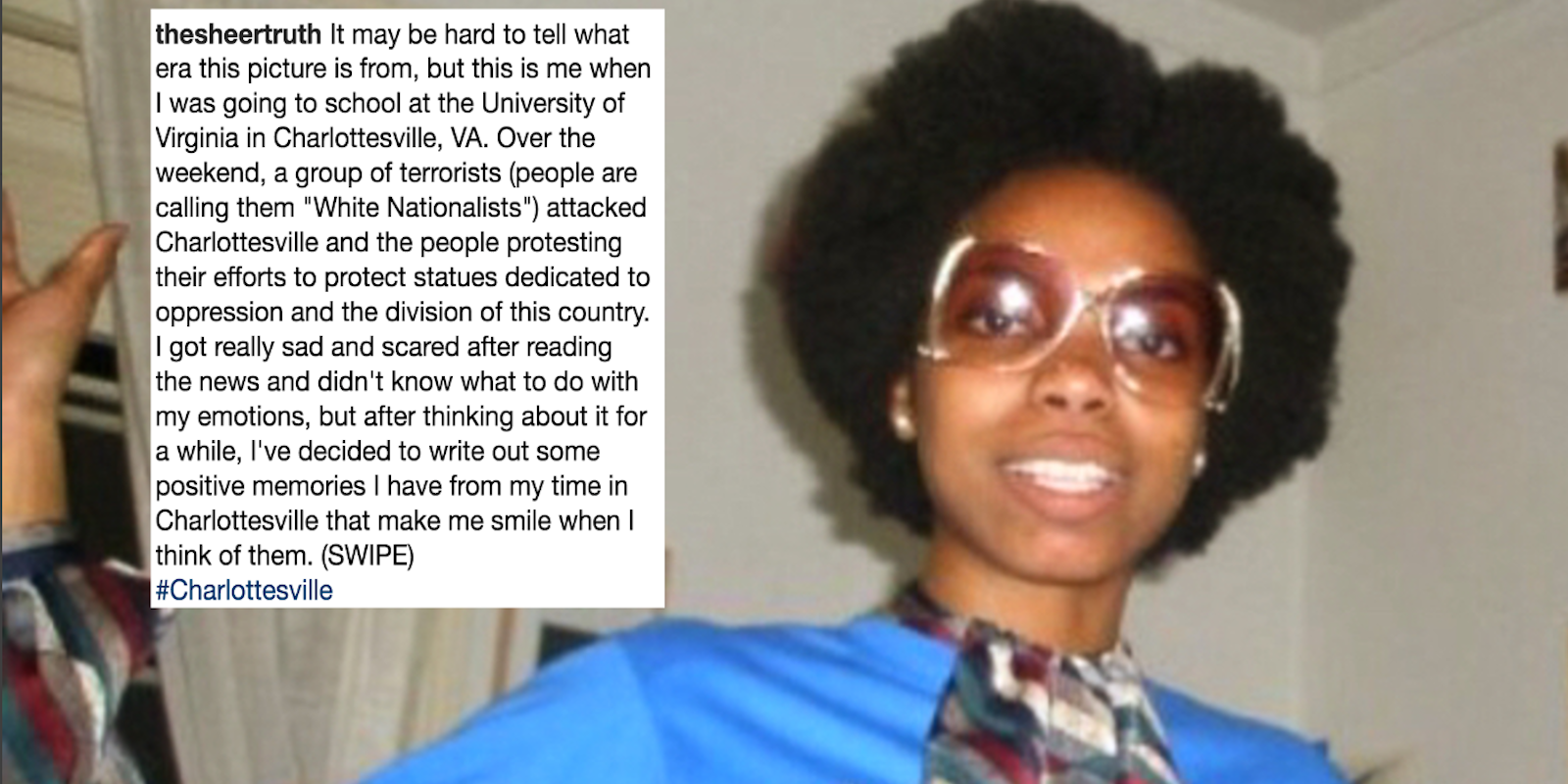Before she was a Saturday Night Live cast member, Sasheer Zamata attended the University of Virginia in Charlottesville, Virginia. It’s the same town where, over the weekend, a demonstrator named Heather Heyer was killed by a driver who allegedly steered into a crowd of nonviolent, anti-white supremacy protestors—after the local government had already declared a state of emergency. Monday evening, Zamata shared her thoughts on the city she used to call home with a 10-photo series on Instagram.
“I got really sad and scared after reading the news and didn’t know what to do with my emotions,” Zamata explained beneath a throwback pic from her college years. “But after thinking about it for a while, I’ve decided to write out some positive memories I have from my time in Charlottesville that make me smile when I think of them.”
https://www.instagram.com/p/BXyWkjVlRQo/?taken-by=thesheertruth
In a series of screenshotted paragraphs from her notes app, Zamata described some highlights from her time at the university.
“I played the Lady in Green in Ntozake Shange’s choreopoem ‘for colored girls who have considered suicide / when the rainbow is enuf’,” she wrote. “And learned so much about myself and performance. Prof. Theresa Davis/Mama T directed the show and told the cast to go to talk to the audience in costume after our performances. People of all different ages, genders, and ethnicities came up to us crying and telling us how much they connected to the words and emotions of the show, and that’s when I knew I wanted to do this forever.”
Zamata also included some of the struggles she was confronted with while attending the school, starting with its history.
“I starred in my first short film… and we shot it during my first winter break at UVA,” she wrote. “I played a slave who was raped and impregnated by a slave owner, and the campus was an appropriate setting since the school was built by slaves and the slave quarters are still intact.”
At one point, Zamata remembers debating whether she should switch schools because of the culture on campus.
“I’m not saying that Charlottesville is full of inclusion and harmony,” she explained. “The racism I saw at the school made me want to transfer my first year, and after talking to a peer advisor (a black upperclassman), I decided not to. She said that I could transfer and maybe things would be easier at a different school, or I could stay and learn about racism now so I’m not surprised when I encounter it after college. I thought that was a pretty bleak way to look at it, but she was right. I’m glad I stayed and I was able to witness racism in a safer environment than I would on my own as an adult.”
Ultimately, though, she remains optimistic about Charlottesville’s future.
Like Mayor Mitch Landrieu said in his speech addressing the removal of the Confederate monuments in New Orleans, these monuments were ‘erected purposefully to send a strong message to all who walked in their shadows about who was still in charge in this city.’ And that’s why these hate groups are scared, they’re afraid they’re not in charge anymore, and they should feel that way,” she wrote. “They can keep rooting for a losing team if they want to, but the Confederacy didn’t win and neither will they.”


